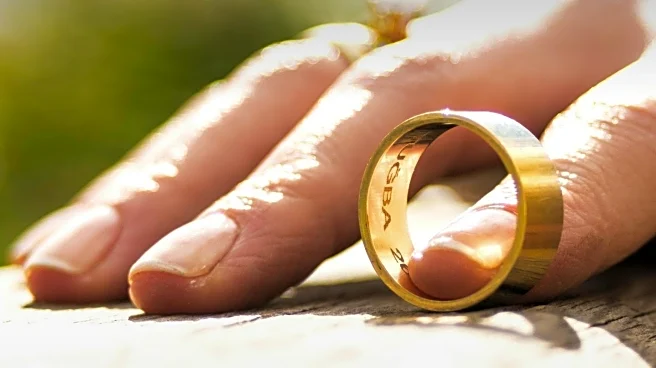What's Happening?
Laura Youngson, inspired by a high-altitude soccer match on Mount Kilimanjaro, founded IDA Sports to address the lack of performance footwear designed for women. Her company is part of a growing trend of women-owned businesses prioritizing female athletes' needs. These companies, including Moolah Kicks and Saysh, are entering the market as interest in women's sports intensifies. The Women's National Basketball Association (WNBA) has seen record attendance, and the National Women's Soccer League teams have increased in value. New professional leagues are forming, and women's sports generated $1.88 billion globally in 2024, with projections of $2.35 billion for 2025.
Why It's Important?
The rise of women-owned sports companies signifies a shift towards addressing the specific needs of female athletes, challenging the 'shrink it and pink it' mentality. This movement not only empowers women in sports but also opens new commercial opportunities. As women's sports gain popularity, these companies are positioned to capitalize on the growing market, offering products that are both functional and tailored to women's bodies. This trend could lead to increased investment in women's sports and greater visibility for female athletes, fostering gender equality in the sports industry.
What's Next?
As women's sports continue to grow, more companies may enter the market, further professionalizing the industry. Established brands like Adidas and Nike are already developing women's sports shoes, indicating potential collaborations or competition with women-owned businesses. The focus on authenticity and partnerships with women's leagues and athletes could drive further innovation and consumer engagement. The success of these companies may encourage more women to pursue entrepreneurship in sports, potentially leading to a more diverse and inclusive industry.
Beyond the Headlines
The emergence of women-owned sports companies highlights broader societal shifts towards gender equality and empowerment. By prioritizing women's needs, these businesses challenge traditional norms and contribute to a cultural change in sports. The involvement of female athletes in product development fosters a sense of ownership and representation, potentially inspiring future generations. Additionally, the emphasis on ethical practices, such as sustainable packaging and fair working conditions, reflects a growing consumer demand for socially responsible businesses.










